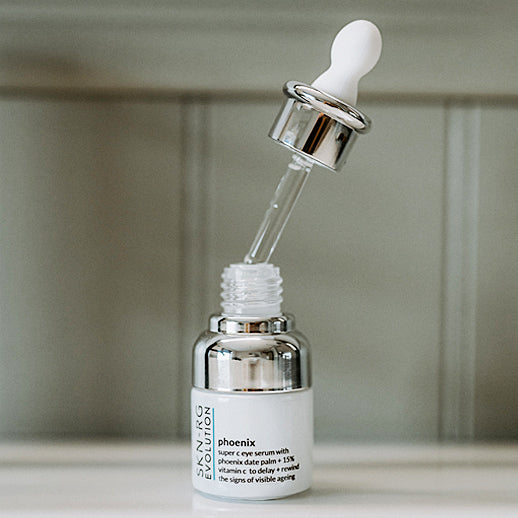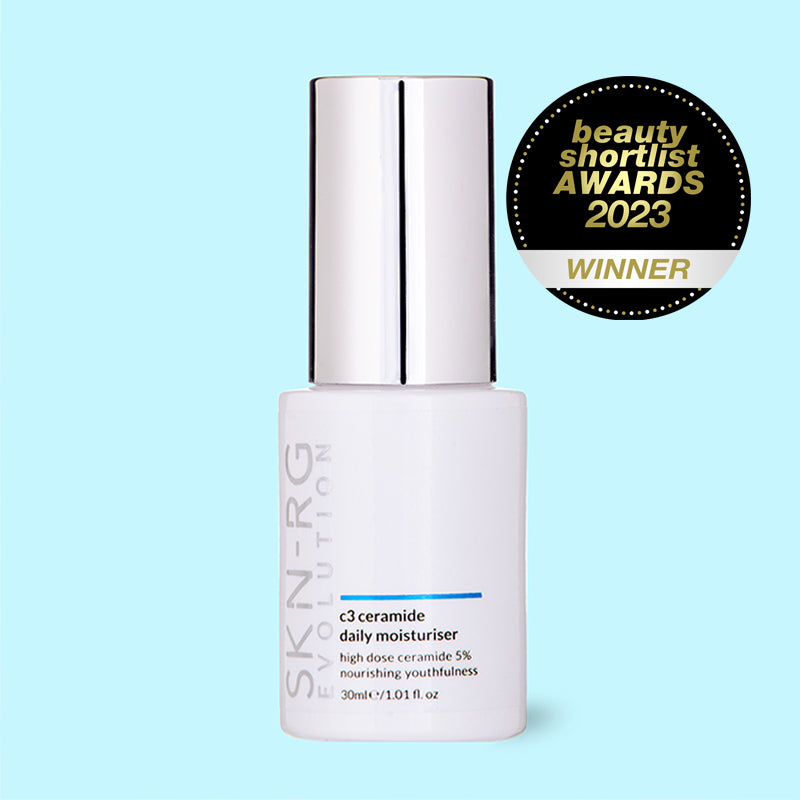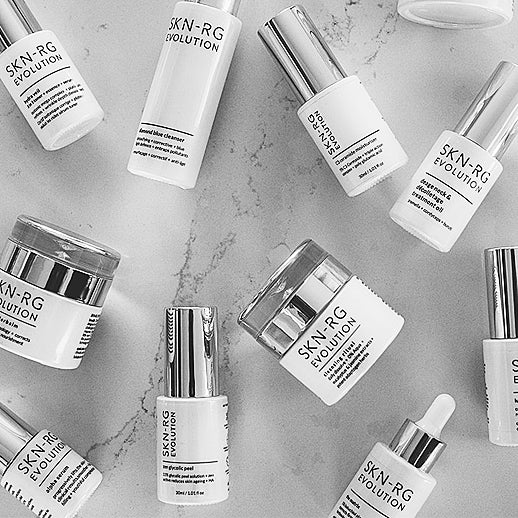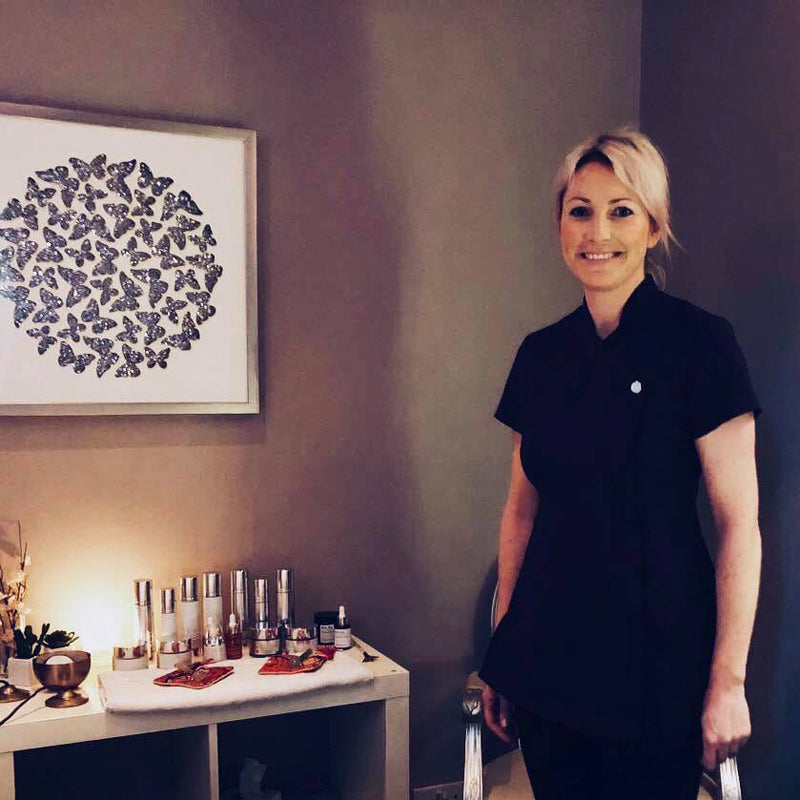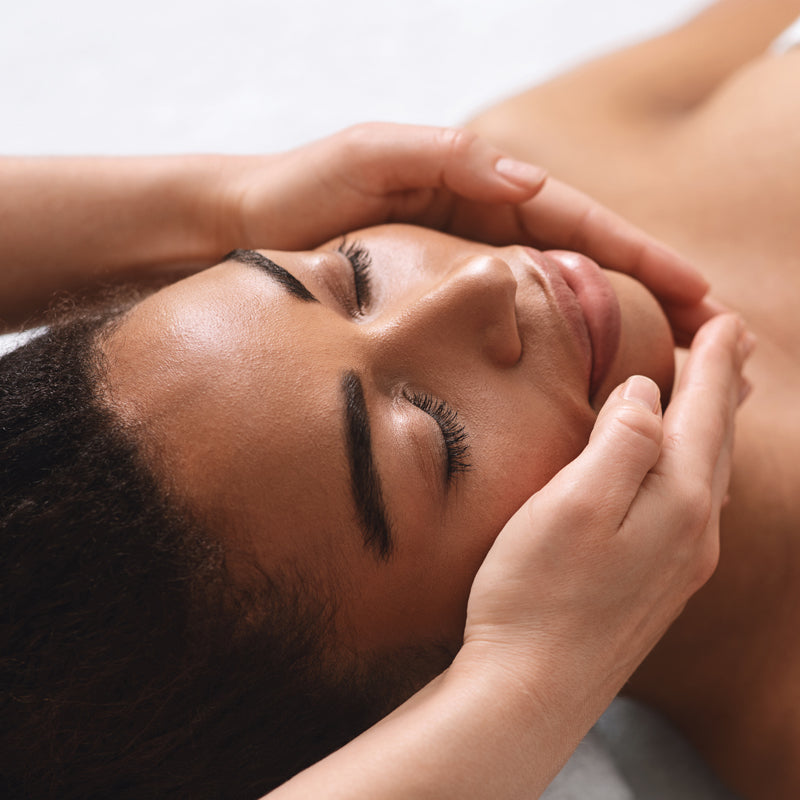
Deborah Scott's Top Tips For Perimenopausal and Menopausal Skin.
An aha moment occurred to me a few years back. I was struggling with energy, sudden hot flushes and restless legs through the night, and then one day, when walking in the middle of Manchester Centre - I was having a panic attack. I had never suffered from panic attacks before, let alone low mood and then a casual conversation with another therapist turned a simple chat into an "ah ha" moment closely followed by my thought which was:
"Am I that old?!?!".
"That's it (I thought) and I began researching. I dived into every medical paper on the subject and the latest books* (podcasts and apps see below), and my lab became a shrine to every herb and medicinal compound possible out there, my husband even joined me in the quest finding nuggets of information and helping me in my journey.
In my quest for knowledge, I stumbled upon a vast sea of conflicting information. However, I also discovered some incredible new insights. Realising that many other women must be feeling overwhelmed by the abundance of information, I decided to make it my mission to help them by providing clear and practical guidance. With over a decade of extensive research, I am confident in my ability to offer valuable insights that can assist you in navigating this period of your life with ease.
If you are gliding through it, or struggling through it, I hope this leads you to your "aha moment" and allows you to navigate your journey effortlessly.
Best of luck!
Deborah Scott Founder Skin-rg Skincare
Series 1.
What's Happening With My Skin During Perimenopause?
The fluctuations in oestrogen levels during perimenopause can have an impact on your skin. As a result of decreasing oestrogen, your skin's ability to retain ceramides, which are fatty acids that help lock in moisture, may be affected. While some may experience no skin issues, many women are susceptible to redness and acne-prone skin during perimenopause.
For instance, when I turned forty over ten years ago, I suddenly developed adult acne, which included heavy-duty spots that lingered for a long time without erupting, especially around the chin area. Additionally, the skin becomes thinner during perimenopause, which means it takes longer to heal. This delay in healing applies to spots, cuts, or open wounds, which will take longer to heal because the skin has fewer receptors to deal with them.
Tackle Each Concern Separately
It's better to care for specific issues like redness and spots during perimenopause instead of following the latest skincare trends or buying products aimed at ageing skin. However, it's important not to overly treat your entire face with harsh consequences. When dealing with spots, focus on treating those areas only. As someone who has gone through perimenopause, I found that switching to a lighter, water-based moisturiser, for example: C3 Ceramide Daily Moisturiser penetrates the skin more quickly, helping me feel more comfortable. Additionally, products containing prebiotics and probiotics can gently improve your skin barrier without being aggressive.
Menopause And Your Skin
As women approach menopause, the levels of oestrogen in the body decrease, causing the skin to lose its elasticity, resulting in wrinkles and sagging. If you notice a change in your skin texture from being oily to dry and tight after cleansing, it may be a sign that oestrogen levels are dropping further. This change is a common indication of nearing menopause.
In addition, the skin becomes less efficient at retaining moisture, leading to dryness, flakiness, and itchiness. Although hormonal fluctuations during menopause can cause occasional breakouts, the skin tends to be drier and paler.
It's important to note that skincare products claiming to prevent hot flashes or fix menopausal skin should be avoided unless prescribed by a medical professional, as they may not be effective and can be a waste of money.
If you have a big event coming up, the Phoenix Super C Serum can work wonders in a very short time. Look for products containing ceramides and peptides, like C3 Ceramide Moisturiser and avoid anything irritating your skin.
During the day, menopausal skin responds well to cleansing milks and creams, facial mists, and a good moisturiser. Remember to apply a good SPF to protect your skin. You need to use SPF to read a book outside in natural light.
Try our SPF 30 Pure Shield with added tint to give you a beautiful glow.
It's also important to note that active products like retinol might not work as well for menopausal skin. The skin barrier is often depleted during this time, so you may suddenly become irritated by retinol.
The best thing to do is swap it out for The Matrix, which is plant retinol and less harsh. The key is to listen to your skin and body, be gentle with yourself, and adjust your routine accordingly.
*My Top Menopause Books
- The Definitive Guide to the Perimenopause and Menopause - The Sunday Times bestseller
- The Happy Menopause Jackie Lynch - Nutritionist & Author
About Deborah Scott - Deborah Scott is a successful entrepreneur specialising in the beauty and wellness industry. With decades of experience, she has launched and built her own skincare brand called Skin-rg. Her expertise as a nutritionist, beauty teacher, advanced facialist, organic chemist, and BA Hons Degree in Physical science have converged, enabling her to fuse her knowledge and create a unique brand that is focused on delivering the best possible results.

